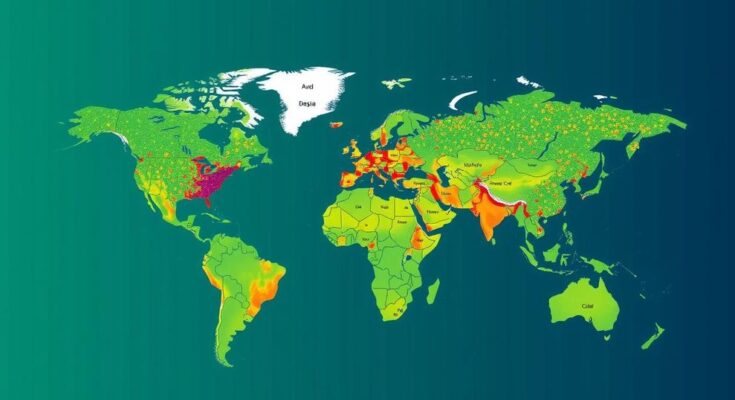COP29 is the 29th UN Climate Change Conference, occurring from November 11-22, 2024, in Baku, Azerbaijan. The conference aims to secure financial commitments for developing countries to reduce emissions and adapt to climate change. Major world leaders are notably absent, raising concerns about the effectiveness of the talks amidst ongoing crises and Azerbaijan’s controversial role as host, given its plans to expand gas production. The outcomes are critical for future climate policy and international cooperation.
COP29, the 29th UN Climate Change Conference, is scheduled to take place from November 11 to November 22, 2024, in Baku, Azerbaijan. This annual meeting assembles world leaders to address climate change by discussing the reduction of greenhouse gas emissions and enhancing support for developing countries impacted by climate consequences. However, the backdrop of recent global events, including the election of Donald Trump, has raised concerns regarding commitment and participation among major world leaders, notably absent from this year’s conference. A significant focus for COP29 will be securing financial commitments to aid poorer nations in reducing emissions and adapting to climate change effects. Under the Paris Agreement of 2015, nations aimed to limit global temperature rise to 1.5 degrees Celsius, necessitating increased financial resources for emerging economies. The goal is to collectively achieve over $1 trillion in climate finance annually for developing regions by 2030. However, the absence of key leaders from influential economies may hinder progress in securing these vital financial commitments. In addition to financial discussions, COP29 will examine individual nations’ climate action plans and their adequacy in addressing global warming. These plans must be updated every five years, pushing for stronger commitments, which will be scrutinized at this conference. Furthermore, the ongoing discussions regarding fossil fuel agreements from previous conferences will also play a significant role in determining future legislative action. The decision to hold COP29 in Azerbaijan has brought scrutiny due to the host country’s plans to expand gas production, raising questions regarding its commitment to transitioning away from fossil fuels. Critics argue that Azerbaijan’s role in the conference contradicts its environmental goals, and there are concerns about using the platform to attract investments in fossil fuels while maintaining a poor human rights record. The recent victory of climate-skeptic Donald Trump has cast a shadow over COP29, as many experts believe his administration could undermine international climate efforts. While current U.S. leadership may strive to maintain progress at the conference, any agreements reached may not be binding under a subsequent Trump administration, potentially affecting global climate finance dynamics. Despite these challenges, experts emphasize that collective action remains paramount as the climate crisis continues to escalate, necessitating urgent measures to mitigate its impacts.
The Conference of the Parties (COP) is an annual meeting of countries that are parties to the UNFCCC (United Nations Framework Convention on Climate Change), which aims to address climate change on a global scale. This year, COP29 is particularly critical as leaders negotiate financial support for developing nations, manage personal and international crisis distractions, and evaluate the host nation’s credibility in advancing climate goals amidst ongoing fossil fuel expansions. The meeting’s outcomes will substantially impact global climate policy, especially as the effects of climate change become increasingly pronounced in recent years.
In conclusion, COP29 is a pivotal event that aims to address critical issues surrounding climate finance and strategies to combat climate change. However, the absence of major world leaders and the controversies surrounding Azerbaijan’s role as a host nation raise significant concerns about the conference’s overall effectiveness. As climate change continues to pose an escalating threat to global stability, the outcomes of COP29 will be crucial in determining the direction of international climate action.
Original Source: www.bbc.com




